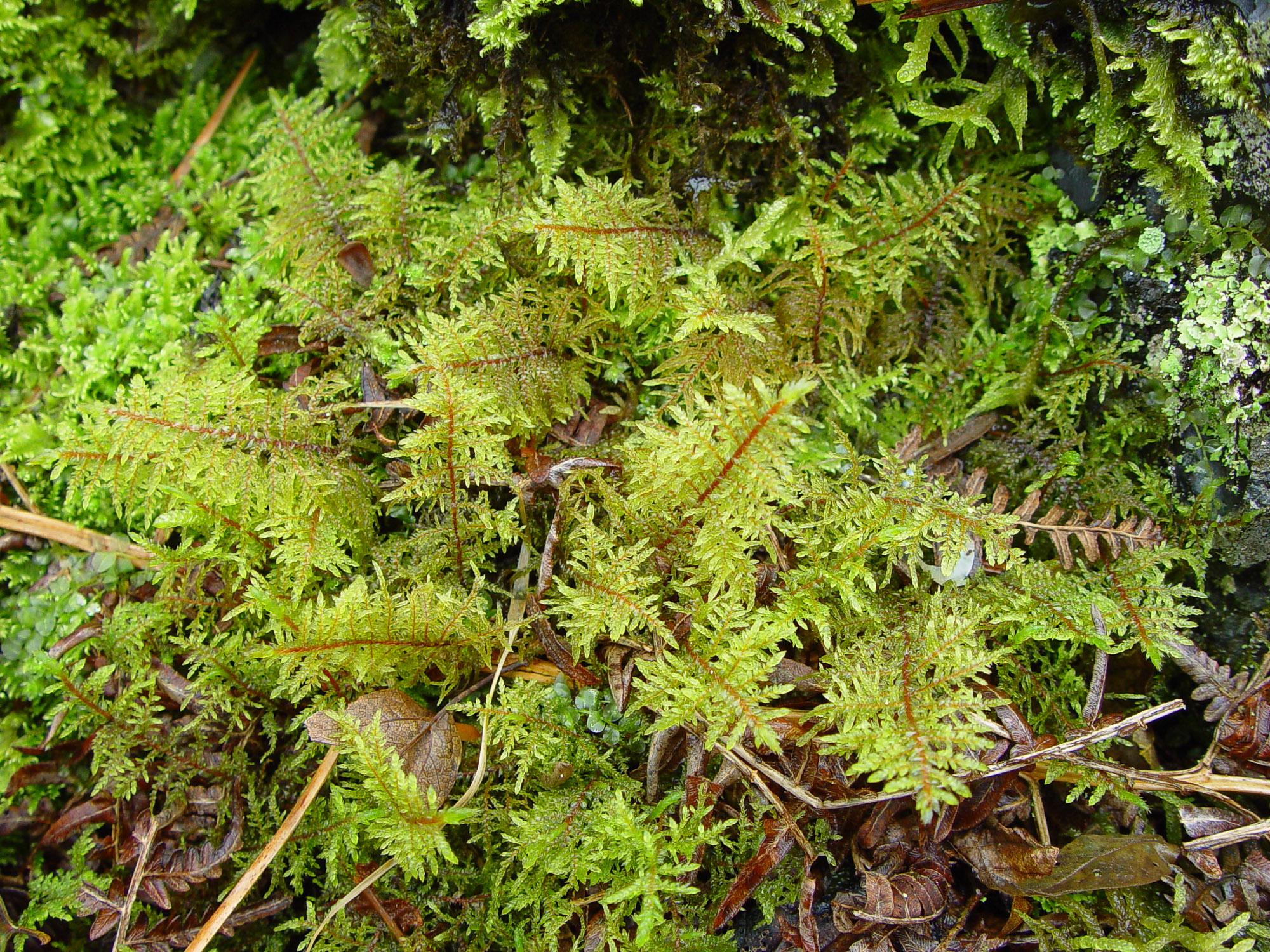
Hylocomium-splendens-1104.jpg from: https://www.britishbryologicalsociety.org.uk/learning/species-finder/hylocomium-splendens/
Introduction
Welcome, fellow enthusiasts, to an enchanting exploration of the Hylocomium splendens (Hedw.) Schimp., a captivating moss species from the Hylocomiaceae family. Often referred to simply as Hylocomium, this unassuming yet remarkable bryophyte holds a special place in the intricate tapestry of nature.
Background
Before we delve into the intricacies of this moss, let’s set the stage with a brief introduction to the world of bryophytes. These non-vascular plants, which include mosses, liverworts, and hornworts, are often overlooked but play a crucial role in various ecosystems. They are among the oldest land plants on Earth, with fossil records dating back over 400 million years.
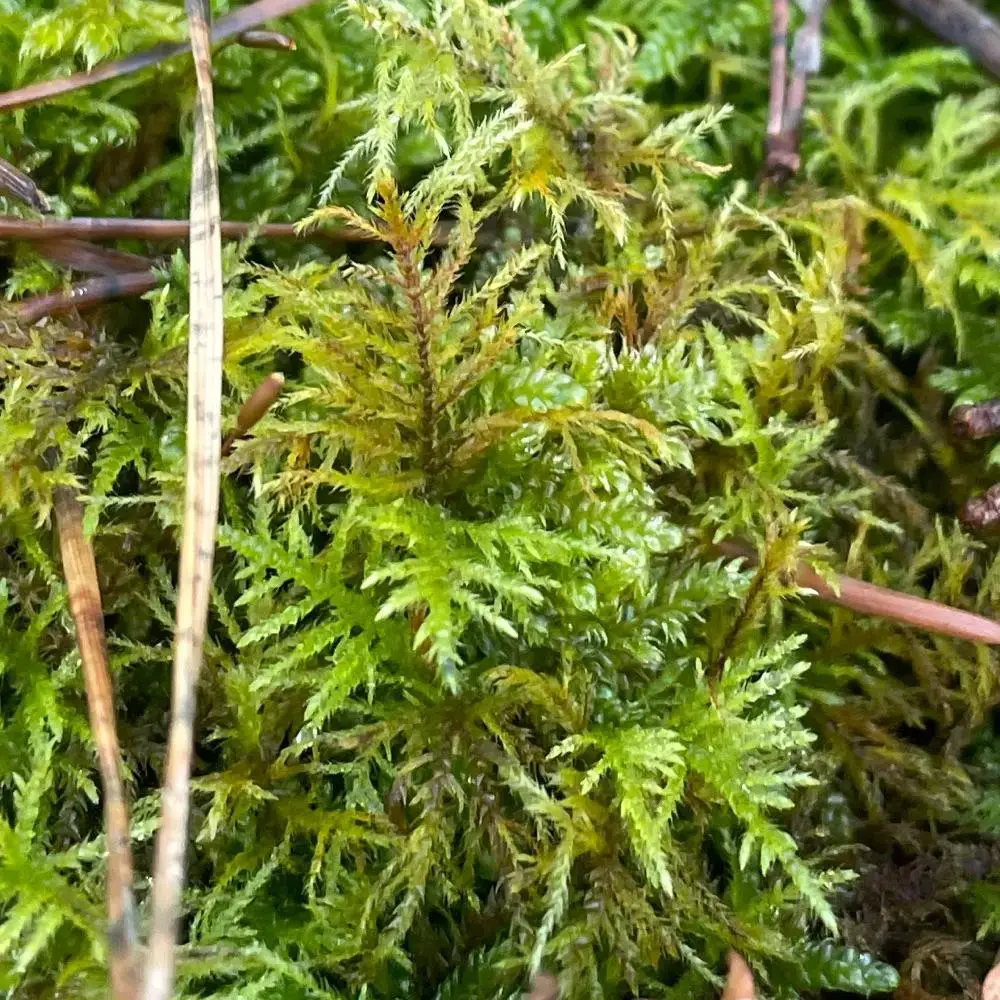
46101980.jpg from: https://observation.org/photos/46101980/
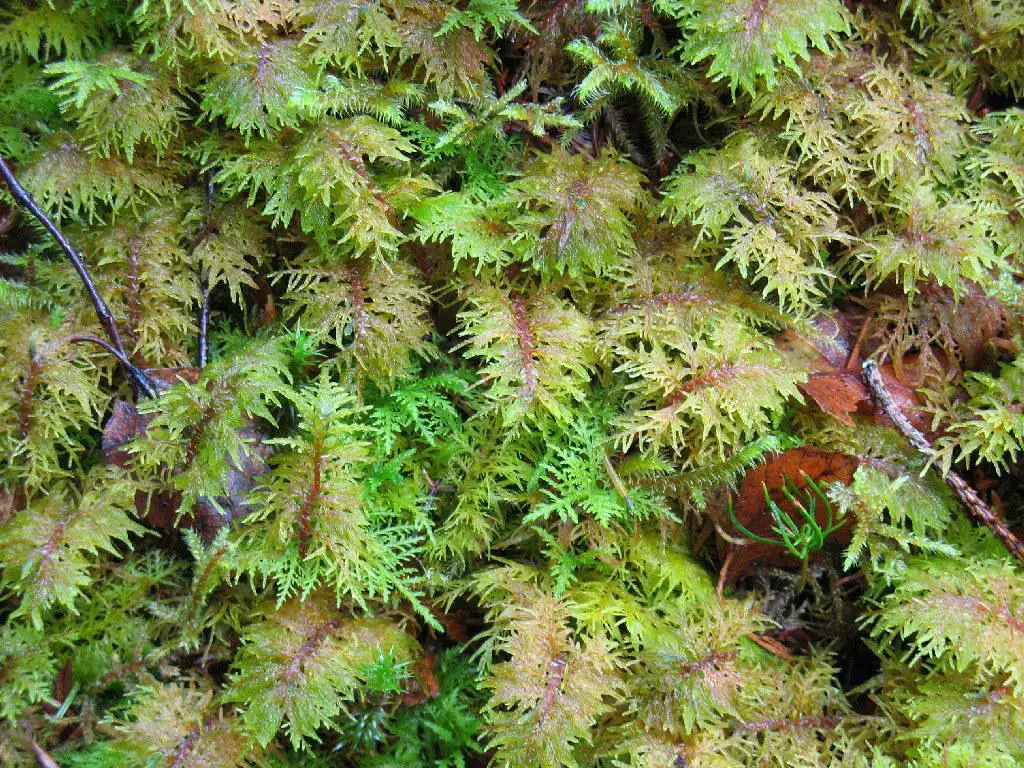
2179924119_e082762bb3_b.jpg from: https://www.flickr.com/photos/70887256@N00/2179924119/
Main Content
Morphology and Identification
The Hylocomium splendens is a pleurocarpous moss, meaning its stems grow horizontally along the ground or substrate. Its vibrant green hue and glossy appearance make it a true standout in the moss kingdom. This moss forms dense mats or cushions, with stems that can reach up to 15 centimeters in length.
One of the most distinctive features of Hylocomium splendens is its falcate (sickle-shaped) leaves, which curve elegantly to one side of the stem. These leaves are lanceolate
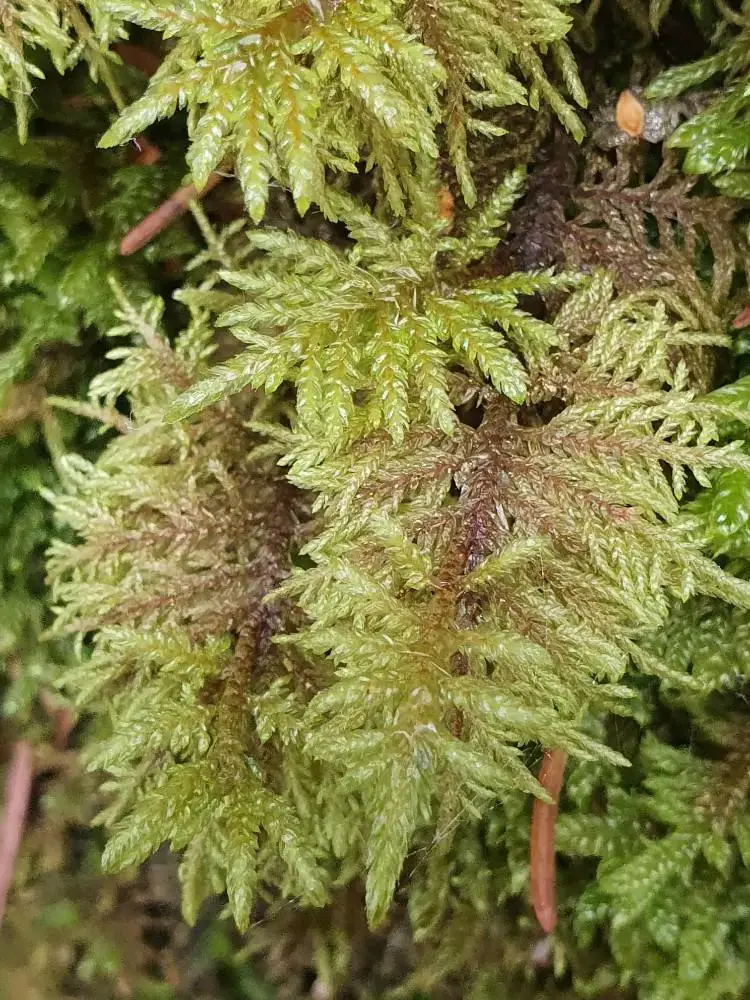
59628637.jpg from: https://observation.org/photos/59628637/
(lance-shaped) and have a serrated (toothed) margin, adding to their unique appearance.
Global Distribution and Habitat
Hylocomium splendens is a widely distributed moss species, found across the Northern Hemisphere, including North America, Europe, and Asia. It thrives in various habitats, such as boreal and temperate forests,
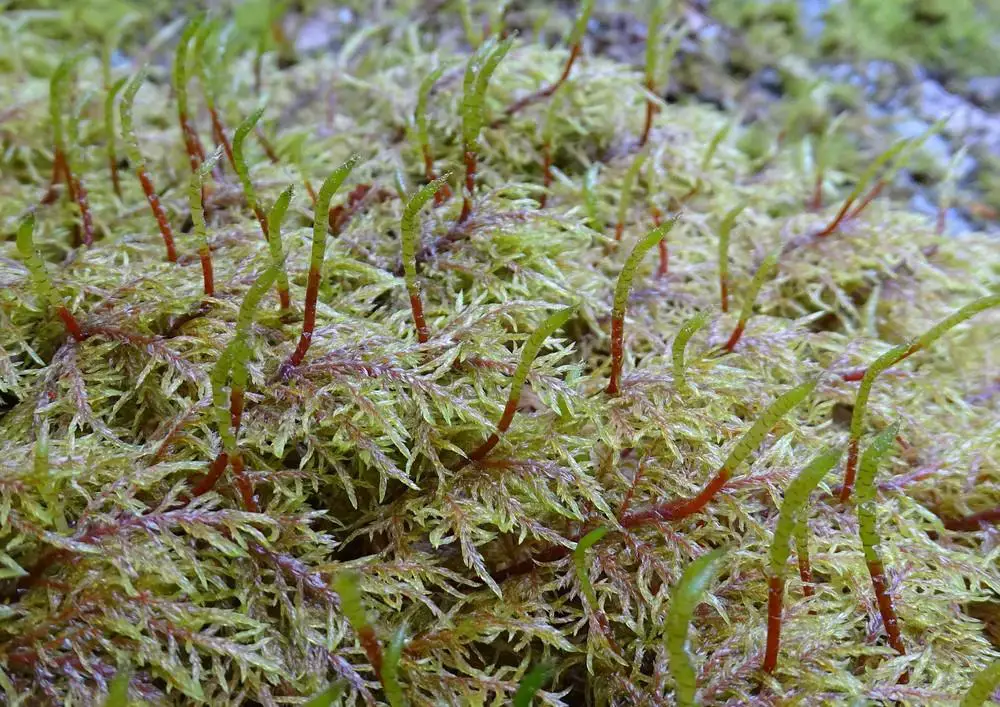
38635557.jpg from: https://observation.org/photos/38635557/
bogs, and tundra regions. This moss prefers acidic, well-drained soils and often grows on decaying logs, stumps, or the forest floor.
Ecological Roles and Adaptations
Despite its unassuming appearance, Hylocomium splendens plays a vital role in its ecosystem. Its dense mats help retain moisture and create a microhabitat for various invertebrates, fungi, and other organisms. Additionally, this moss contributes to the decomposition process by breaking down organic matter and releasing nutrients into the soil.
One of the remarkable adaptations of Hylocomium splendens is its ability to desiccate (dry out) and revive when moisture becomes available again. This trait, known as poikilohydry, allows the moss to survive in harsh environments and periods of drought.
Case Studies/Examples
In the boreal forests of Scandinavia, Hylocomium splendens is a dominant ground cover species, forming extensive mats that provide a suitable habitat for various organisms, including small mammals and ground-nesting birds. Its presence is often used as an indicator of healthy, undisturbed forest ecosystems.
Technical Table
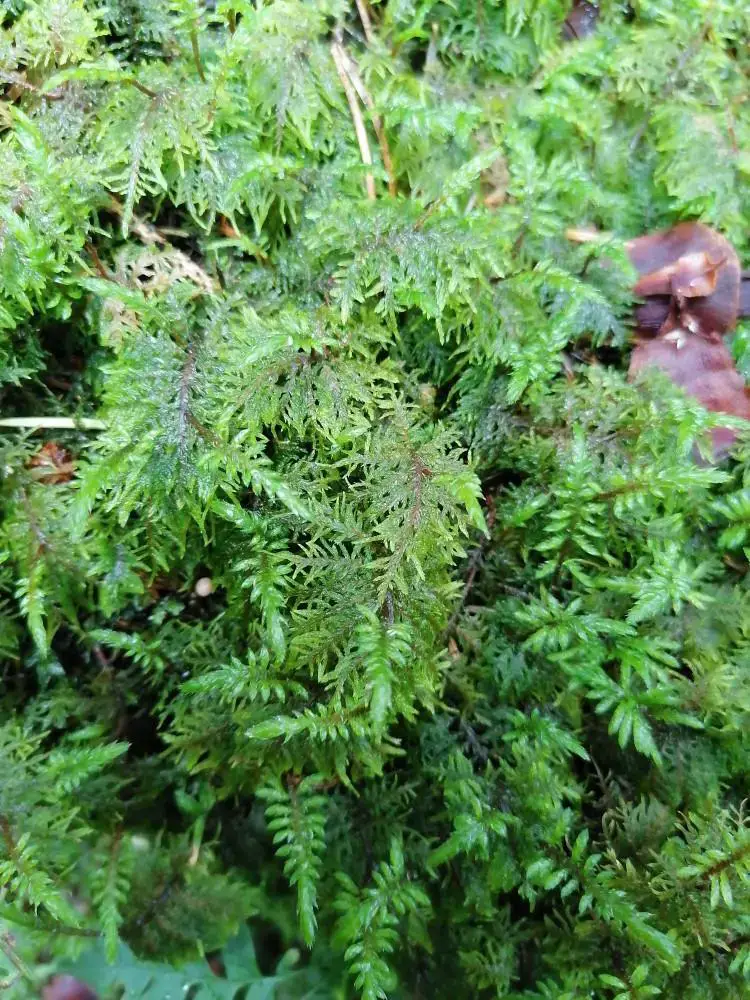
39265097.jpg from: https://observation.org/photos/39265097/
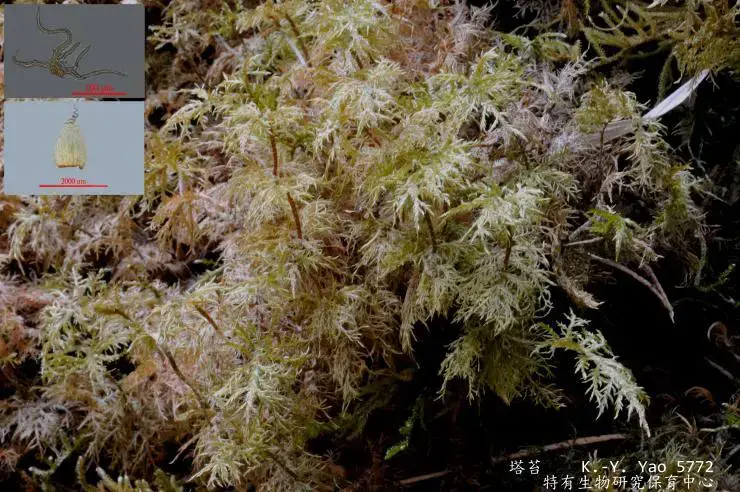
a5e8a4c991cfc56259b0eccec6d5ba43.jpg from: https://openmuseum.tw/muse/digi_object/2af6335ae036d5880eadf6af3e0375c7
Hylocomium_splendesL.jpg from: https://azoresbioportal.uac.pt/pt/especies-dos-acores/hylocomium-splendens-11768/
| Characteristic | Description |
|---|---|
| Phylum | Bryophyta |
| Class | Bryopsida |
| Order | Hypnales |
| Family | Hylocomiaceae |
| Genus | Hylocomium |
| Species | Hylocomium splendens (Hedw.) Schimp. |
| Common Name | Stair-step Moss, Glittering Wood Moss |
| Growth Form | Pleurocarpous |
| Leaf Shape | Falcate, Lanceolate |
| Leaf Margin | Serrated
Hylocomium_splendens-6CD8BBCBA7.jpg from: https://florafinder.org/Species/Hylocomium_splendens.php |
Conclusion
The Hylocomium splendens (Hedw.) Schimp., a true gem of the moss world, reminds us of the intricate beauty and resilience found in nature’s smallest wonders. As we bid farewell to this captivating species, let us ponder: How can we better appreciate and protect the often-overlooked mosses that play such vital roles in our ecosystems?